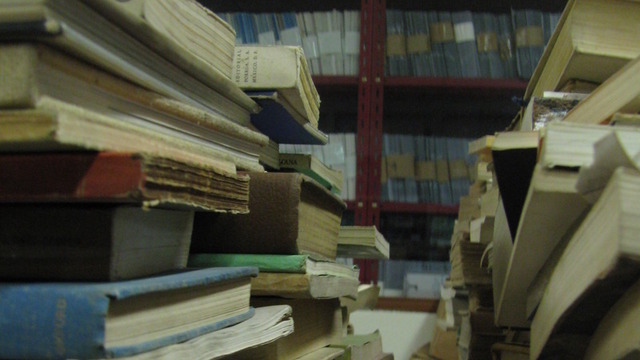
It's as if the last four years hadn't happened. In 2007, Google's legal dispute with a coalition of authors and publishers over Google Books was put on hold while the parties hashed out a settlement agreement. That agreement was announced in 2008, but it attracted a massive backlash that convinced Judge Denny Chin to reject the settlement earlier this year.
So after three years of working together to try to get their settlement approved, the parties are now back in courts and at each others' throats. Google's opponents include both associations like the Author's Guild and the American Society of Media Photographers, as well as several individual authors and photographers. On Thursday, Google asked Judge Chin to boot the associations from the courtroom, arguing that copyright infringement lawsuits must be filed by copyright holders themselves, not associations claiming to represent them. If successful, the motion would leave the individual plaintiffs to carry on the lawsuits on their own, weakening the plaintiffs' position.
There are actually three distinct book-related lawsuits against Google that are running in parallel. The two original lawsuits, one by major book publishers and one by the authors, were initiated in 2005. These are the cases the parties tried to settle in 2008. A third lawsuit was filed in 2010 by a coalition of photographers and illustrators who felt their interests were not represented in the settlement negotiations.
James Grimmelmann, a copyright scholar at New York Law School, told Ars that the publishers are likely to settle their lawsuit. "The publishers are willing to settle on terms that Google thinks are pretty easy to live with," he said. The publishers are primarily interested in maximizing revenue, and so they're strongly motivated to find a way to let Google digitize their books in exchange for a cut of the revenue. Grimmelmann said there have been rumors of an imminent settlement in the publishers' case for months.
But Google is likely to carry on its battle with the authors, photographers, and other individual copyright holders. Some authors consider the fight a matter of principle. And even if Google convinced the individual named authors to settle their lawsuit, that wouldn't prevent other authors from filing lawsuits in the future. So Google may have little choice but to seek a ruling from the courts that its scanning project is legal under copyright's fair use doctrine.
The authors have sought to transform their lawsuit into a class-action representing a broader range of copyright holders, and the photographers are likely to do the same. That request could prove decisive. If Judge Chin allows the class-action lawsuit, Google will face much higher damages. On the other hand, if class certification fails, Grimmelmann said the plaintiffs may be forced to drop the case, because the plaintiffs' lawyers may not consider it financially rewarding to represent a handful of individual copyright holders.
That will be especially true if the Author's Guild and other associations are dismissed from the cases. Grimmelmann argued that Google's Thursday filing seeking their dismissal was a tactical strike to prepare the ground for its motions opposing class certification early next year. Litigation is expensive, and eliminating the associational plaintiffs from the cases could make it harder to finance the lawsuit. Moreover, removing the associations would make it easier for Google to argue against class certification on the grounds that the individual copyright holders remaining in the cases don't adequately represent the interests of authors and photographers generally.
If Judge Chin certifies the classes, then the cases will move forward, with Google making a fair use argument later in 2012. A decision on the merits would then be expected in late 2012 or 2013.
Listing image by Photograph by Luis Guillermo Pineda Rodas
reader comments
119